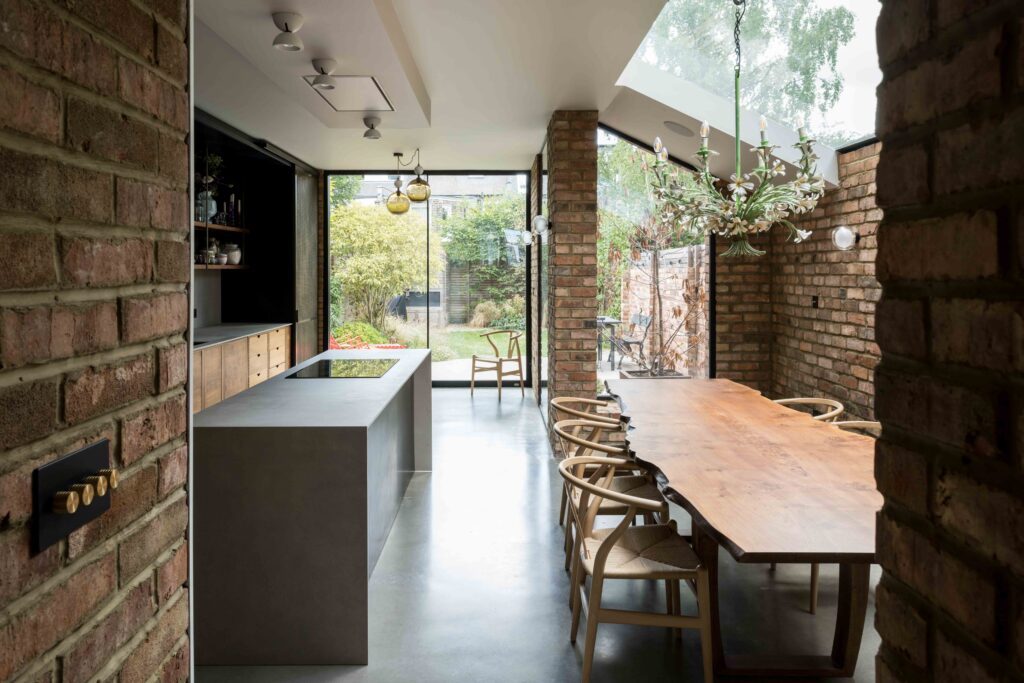The gravitation towards low energy and low embodied carbon designs has never been more pertinent. The UK, like many countries globally, is undergoing a significant shift in its approach to building energy performance. This article delves deep into understanding these changes, particularly from a landlord’s perspective.

1. The Cornerstone: Energy Performance Certificates (EPCs)
EPCs, for those unfamiliar, play a pivotal role in the UK’s housing market. As a mandatory provision for rental properties, they offer potential tenants a window into a property’s energy efficiency. In simpler terms, a higher EPC rating can significantly increase the property’s allure to prospective tenants, acting as a beacon for those conscious of both their environmental impact and energy bills.
2. Navigating the New Building Regulations
The winds of change ushered in revamped Building Regulations on June 15th, 2022. Of these, landlords and developers must pay heed to:
- Part L: Zeroing in on thermal performance.
- Part F: Concentrating on ventilation.
- Part O: A brand-new addition, highlighting overheating.
While these updated regulations predominantly focus on new constructions, existing properties undergoing major renovations aren’t exempt.
3. SAP’s Evolution: The New Assessment Methodology
The SAP assessment methodology’s technical upgrade is pivotal. Gone are the days when fossil fuel-based heating methods ruled the roost. The contemporary approach places energy-conserving building materials and non-fossil fuel heating methods on a pedestal.
4. The Changing Landscape for Landlords
From my interactions with landlords and fellow architects, it’s evident that these changes carry profound implications:
- Transition in Heating Paradigms: Traditional gas boilers, once champions of heating, are now fading into the background, making way for sustainable alternatives.
- The Advent of SAP10.2 Software: Elmhurst Energy‘s response to the shifting landscape. This sophisticated software transcends conventional energy cost assessments, capturing the essence of new builds’ energy efficiency.
5. The Legal Tapestry
Developers, brace yourselves! The new regulations are now enshrined in law. From conceptualising to habitation, these metrics are non-negotiable. Non-compliance is not only detrimental to our environment but can lead to legal ramifications.
6. EPC Scores: The Silent Influencers
Having been deeply entrenched in the property world, it’s clear that EPC scores are gaining traction. With mounting concerns over energy consumption, these scores heavily influence rental or purchase decisions, serving as the unsung heroes (or villains) of a property’s desirability.
7. The Economic Lens: Impact on Property Valuations
Anticipating market trends suggests a potential uptick in rent or sale prices for properties boasting EPC ratings of band C or higher. As the market plays catch-up, landlords must discern the long-term financial benefits of aligning with these regulations.
8. The Looming Shadow of Rising Energy Costs
The projections are stark. With the Ofgem fuel price cap speculated to soar above £3,000 by this year’s end and likely staying above £2,600 till late 2023, the clamour for energy-efficient homes will grow louder.
9. Tackling Fuel Poverty Head-On
Fuel poverty is an impending crisis, with countless UK households teetering on its brink. As architects and landlords, our responsibility extends beyond bricks and mortar. By championing energy-efficient properties, we can play a pivotal role in alleviating this looming challenge.
Conclusion: The Road Ahead for Sustainable Architecture
The architectural realm’s trajectory has never been clearer. With the new Building Regulations and SAP assessment shifts, the paradigm has undeniably changed. Landlords must not only adapt but also champion this change, ensuring their properties not only stand tall in the market but also embody the spirit of sustainability.
From my two-decade vantage point, I believe that marrying contemporary design with energy efficiency is the future – a future that is not only sustainable but also aesthetically breathtaking.
If you would like to talk through your project with the team, please do get in touch at mail@risedesignstudio.co.uk or give us a call at 020 3290 1003
RISE Design Studio Architects company reg no: 08129708 VAT no: GB158316403 © RISE Design Studio. Trading since 2011.
